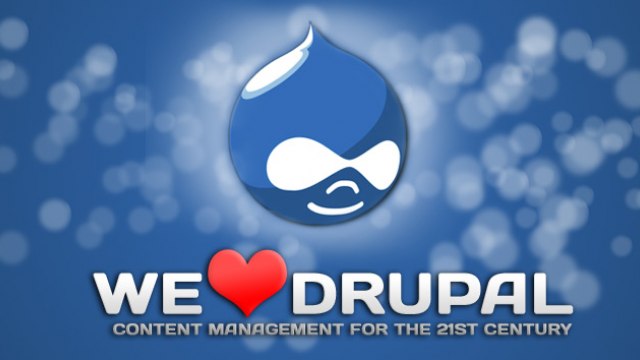Drupal is the leading open source content management system for developing sophisticated, flexible and robust websites, social media networks and applications. We've identified a core set of reasons why Drupal has been adopted by tens of thousands of websites, from individual blogs to massive social media networks, and why it could be the right choice for your online project.
Drupal is proven
You don't need to look far to find examples of Drupal being used by the world's biggest brands, organisations and even countries for highly complex websites that cope with massive amounts of visitor traffic. You may have heard of some of them: The United Nations, Google, Yahoo, AOL, Sony/BMG, Universal Music Group, Warner Bros Music, Adobe, Harvard University, MTV, Nike, Amnesty International, Greenpeace, FedEx, Novell, Disney, The Kingdom of Belgium, Sun Microsystems, the New Zealand Government and Metallica.
Drupal is also a mature product with a huge user base. Started in 2001 and now in it's seventh full release, Drupal core is currently downloaded about 150,000 times per month from Drupal.org.
Drupal is open source software
In contrast to proprietary software developed and supported by a single company, Drupal is developed and maintained collaboratively by thousands of programmers all working to make the best possible content management system. This approach has a number of key benefits:
-
Drupal core software, contributed modules and a large number of well designed themes are free, allowing more of your budget to be allocated towards development and customisation instead of paying arbitrary license fees and support contracts.
-
A dedicated Drupal team drives the maintenance, security and upgrades of Drupal core on an ongoing basis, resulting in regular updates and enhancements at a much faster pace than a proprietary CMS could produce.
-
Drupal enhancements are always in response to the needs of the community of developers who use it every day, as opposed to the bloatware of unnecessary features many proprietary CMS products contain.
-
Written in the hugely popular and accessible web programming language PHP, Drupal can be developed and maintained by a large base of web developers after a short learning curve to become familiar with Drupal's framework.
Drupal is highly customisable
While you can install and release a basic Drupal website in an hour or so, Drupal is designed to be highly customisable in terms of features, functionality, layout and design. This means you can make it as lean or fully featured as you need it to be.
In fact, many people have started referring to Drupal as a Content Management Framework - a platform on which a developer has free reign to enhance the core functionality.
Unlike other CMS products that force you to work within a rigid paradigm of how the original developers think you should build a website, a Drupal website can be structured in almost any conceivable manner. And if Drupal core or a contributed module doesn't do what you need, you can always jump into the source code and develop your own customised functionality.
Drupal is designed for rapid deployment using an agile development methodology
Unlike old-school website development that involves masses of documentation and nothing for a client to see without weeks or months of development taking place, using Drupal enables you to work in a true 'Web 2.0' style in which core features and functionality can be rapidly deployed to market, with iterative enhancements and customisations made over time.
This gives you the huge advantage of a allocating a smaller initial budget to get your project live, with enhancements made in response to what your website users tell you they want and what your ongoing budget allows.
Drupal has online community features built into core
Instead of treating community features like forums, article commenting and blogging as an afterthought, Drupal has built these features into its core, so that every authenticated user of your website can create content depending on the level of permissions you've set. This enables the rapid deployment of social networking functionality without the need for major customisation or the mash-up of third party products and services. These features can be massively extended with the addition of contributed or customised modules. Want to build Flickr with Drupal? You can! Want to build YouTube with Drupal? Sure thing! Want to build Facebook with Drupal? Of course! Just not by next week...
Drupal is enterprise-class
Companies like Microsoft have done a good job at promoting the notion that "open-source" and "enterprise-class" can't be uttered in the same sentence. This stems from open source software being one of the biggest threats to any proprietary software company's business model, so literally millions of marketing dollars have been targeted at spreading the perception that open source should be viewed as inferior in some way. Linux, Java, MySQL, Apache and Firefox are just a few examples that prove this dis-information campaign is just marketing spin.
There's six key factors to a product being defined as enterprise-class, and Drupal ticks all the boxes:
-
System scalability: Drupal can be deployed on a single server or across a load-balanced, distributed server cluster to handle massive traffic loads. For example, The Economist website, built with Drupal, has over 3 million registered users and 30 million page views per month.
-
System reliability: Drupal allows your server hardware to be configured according to best-practice in this regard. Drupal is ideally deployed on a LAMP stack using the Linux operating system, Apache web server, MySQL database and PHP programming language.
-
System manageability: Drupal allows almost infinitely granular control over user roles and permissions.
-
System security: A dedicated Drupal security team is constantly monitoring and addressing security issues with Drupal core. The other advantage of Drupal is that tens of thousands of developers are working with the product on a daily basis in hundreds of thousands of different configurations, so there's enormous strength in numbers to identify and address security issues.
-
Interoperability: Drupal can easily integrate with other web applications through open standards and web services like XML, REST and JSON.
-
Availability of qualified resources: There are tens of thousands of experienced Drupal developers around the world, and Drupal can be easily learnt by anyone with a knowledge of PHP or a background in other programming languages like Java. Drupal theming (visual design and layout) can be performed by anyone with solid skills in HTML/CSS and an understanding of the Drupal framework.
Drupal provides long term business security
Due to a combination of the reasons outlined above, Drupal provides an organisation with a high level of business security in the investment they've made by choosing Drupal as their content management system. Some key points to consider are:
-
Drupal provides all the features and functionality you are likely to need within one framework, providing a greater level of control over the system and users, with less complexity than would be required by integrating a number of third party products.
-
Drupal provides a huge amount of flexibility to adapt features, functionality and design to changes in your business requirements that emerge over time. Drupal's longevity as a content management platform is much more secure than a proprietary CMS product due to the large Drupal development community that has a vested interest in the platform's success.
-
There are literally thousands of proprietary CMS products available, but our question to clients considering this route is always "what happens once the company you buy your CMS from goes out of business?" Is that a risk you're prepared to take?































